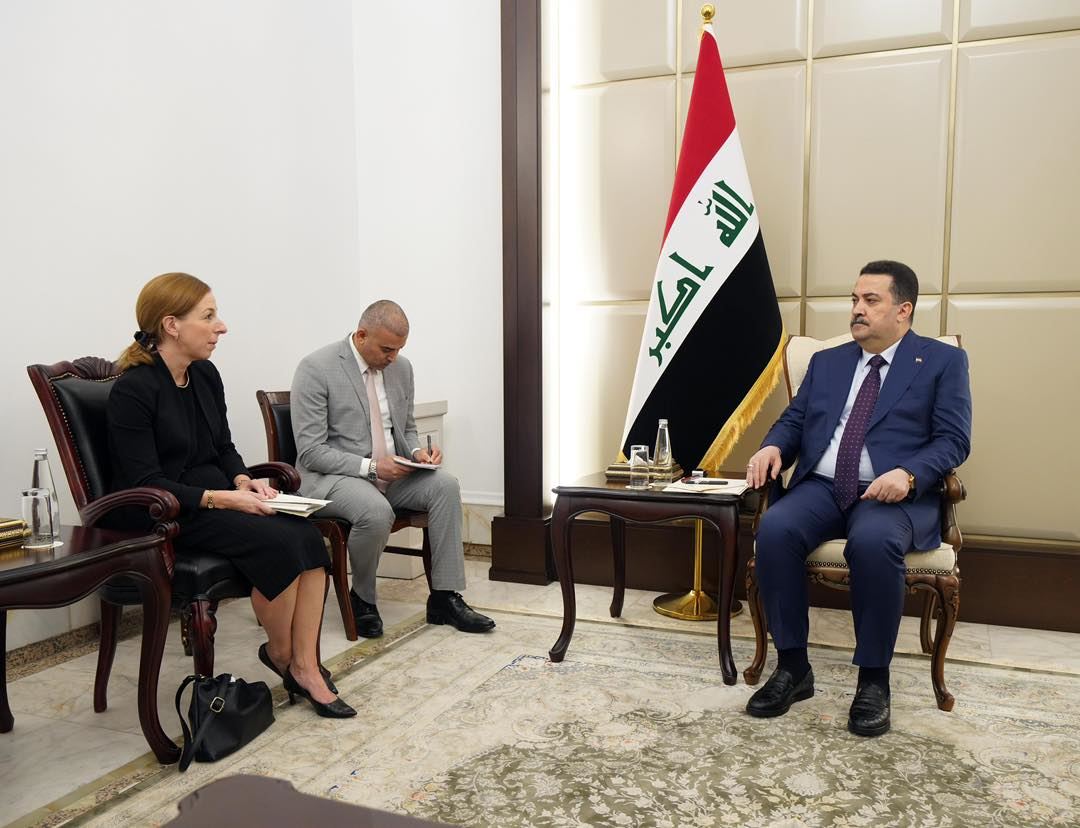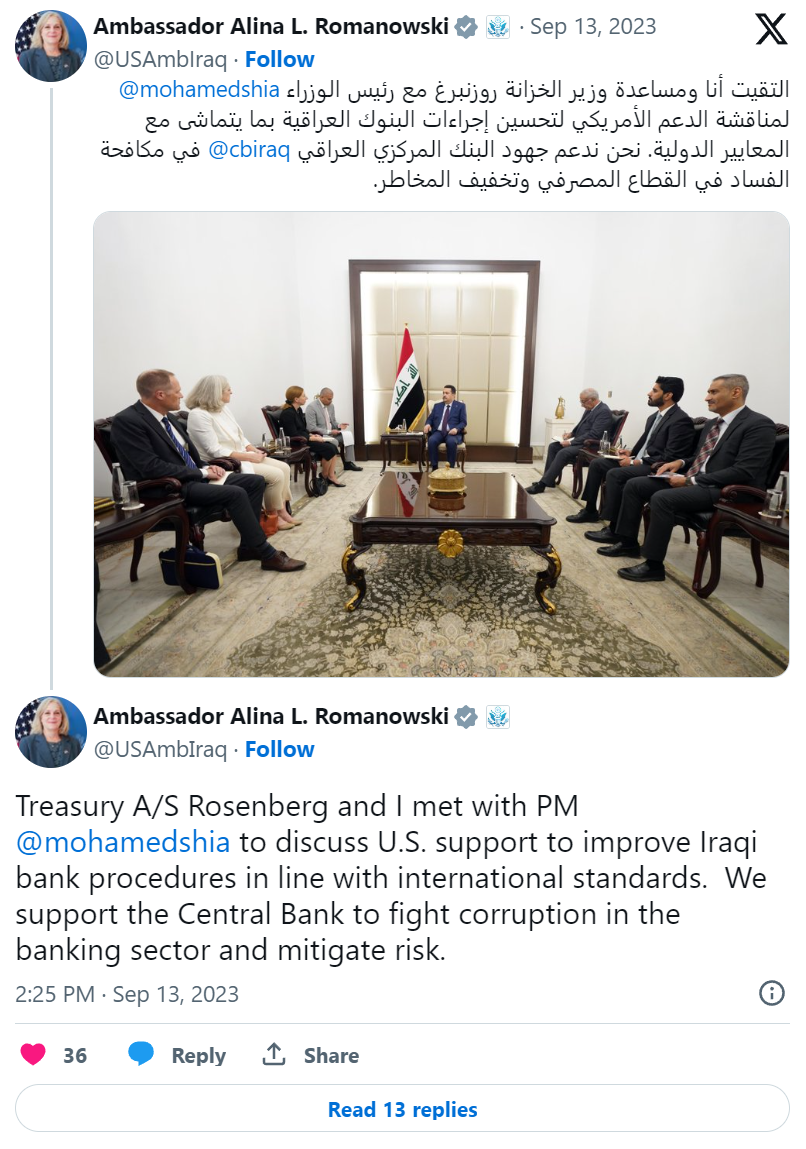Elizabeth Rosenberg, Assistant Secretary for Terrorist Financing and Financial Crimes at the US Department of the Treasury, arrived in Baghdad on Tuesday to make “progress on int’l [international] anti-money laundering & banking reform” to “help combat corruption & support international invest in Iraq,” US Ambassador to Iraq Alina Romanowski said on X, formerly known as Twitter.
Rosenberg met with Iraqi Prime Minister Mohammed Shia’ al-Sudani on Wednesday, discussing joint US-Iraq financial cooperation “and the Iraqi government’s measures to implement financial and banking reforms to reduce corruption in all its forms,” said a statement from Sudani’s office.
During the meeting, Sudani told Rosenberg of the Iraqi government’s commitment to enact reforms aimed at “curbing money laundering, illicit trade, and corruption,” the statement added.
The Iraqi government in March approved a decision from the Central Bank of Iraq (CBI) board of directors to set the exchange rate of $1 to 1,300 IQD. The ongoing smuggling has prevented the suggested value from being reached, and the value of the dollar currently sits at over 1,550 IQD in the currency markets of Iraq and the Kurdistan Region.
Rosenberg also met with CBI Governor Ali Mohsen al-Alaq, reaffirming Washington’s support “to enhance transparency and integrity and implement international compliance instructions in the Iraqi banking system,” the CBI said in a statement.
The US in July banned transactions with 14 Iraqi banks for allegedly violating its rules. The move further dropped the value of the Iraqi currency.
The Iraqi Central Bank in late 2020 devalued the dinar against the US dollar by 22 percent, dropping it from 1,182 IQD to 1,450 IQD and sparking public outrage. The devaluation came in an effort to combat a national liquidity crisis and bring in much-needed cash to the government’s coffers.



 RSS Feed
RSS Feed